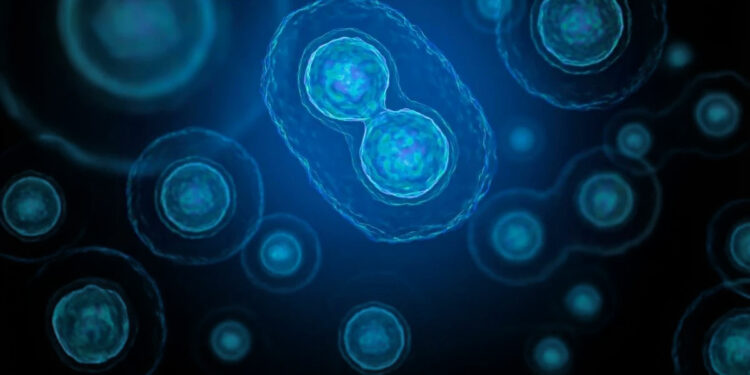Nicotinamide mononucleotide (NMN) is a nucleotide derived from ribose and nicotinamide. It is a direct precursor of nicotinamide adenine dinucleotide (NAD+), a crucial coenzyme found in all living cells. NAD+ plays a vital role in energy metabolism and maintaining cellular health.
NMN is directly involved in the biosynthesis of NAD+. As NAD+ levels decline with age, supplementing with NMN can help restore these levels, thereby supporting various cellular functions such as DNA repair, energy production, and gene expression regulation1. NAD+ is essential for metabolic processes, particularly those involved in converting nutrients into cellular energy. By boosting NAD+ levels, NMN supports enhanced mitochondrial function and overall energy metabolism2.
Research suggests that NMN supplementation may have anti-aging effects. It helps mitigate age-related declines in NAD+ levels, which are associated with various age-related diseases and conditions, including metabolic dysfunction, cognitive decline, and muscle degeneration. NAD+ is crucial for the function of sirtuins, a family of proteins that play a role in cellular health, including DNA repair and maintaining genomic stability. NMN, by increasing NAD+ levels, can help enhance these protective cellular mechanisms3.
Nicotinamide mononucleotide (NMN) has shown promising effects on improving oocyte quality based on both animal and human studies.
Animal Studies
NMN supplementation has been found to improve the quality of oocytes in aged mice. It has been shown to help restore the levels of nicotinamide adenine dinucleotide (NAD+), which decline with age. This restoration enhances the number of mature oocytes and reduces oocyte fragmentation, which is a common problem in aged oocytes2,4. In diabetic mice, NMN improved oocyte maturation, suggesting that it might counteract some of the metabolic and oxidative stresses that impair oocyte quality5.
NMN has also been shown to have a role in improving mitochondrial function and reducing oxidative stress, which are crucial for maintaining oocyte quality and viability6. Studies that have been performed on middle aged rats have shown substantial results. NMN and nicotinamide riboside (NR) were shown to rebalance mitochondrial dynamics, promoting healthier oocyte development in middle-aged female rats. This intervention improved follicle counts and overall ovarian health, indicating potential benefits for reproductive aging7.
Human Studies
Although direct studies on NMN and human oocyte quality are limited due to NMN being a relatively new supplement in the anti-aging world, related research indicates potential benefits. For instance, NMN has been shown to increase insulin sensitivity and improve overall metabolic health in prediabetic women, which could indirectly benefit reproductive health. Furthermore, NMN supplementation in humans has been found to be enhancing mitochondrial function and reducing oxidative stress. Studies indicate that NMN can improve muscle structure and function, potentially aiding in muscle repair and reducing age-related muscle deterioration8.
Multiple studies have confirmed the safety of NMN supplementation in humans. Doses up to 500 mg per day have been well-tolerated without significant adverse effects. Clinical trials reported no significant changes in body weight, blood pressure, or other adverse physiological effects, supporting the safe use of NMN in healthy adults9. In conclusion, NMN supplementation appears to be a promising intervention to enhance oocyte quality, particularly in the context of aging and metabolic disorders. These findings suggest potential applications for improving fertility outcomes in older women and those with metabolic conditions.
At North Cyprus IVF Center, we have incorporated NMN supplementation as part of IVF treatments in older women with diminished ovarian activity. We often prescribe this supplement for a duration of 8 weeks prior to an IVF cycle for its potential benefits in oogenesis.
References
1. Nakagawa T, et al. (2022). Clinical study indicates that NMN efficaciously increases blood NAD+ in humans. *Frontiers in Nutrition*.
2. Yoshino M, et al. (2021). Nicotinamide mononucleotide increases muscle insulin sensitivity in prediabetic women. *Science*, 372(6547), 1224-1229.
3. Recent research into nicotinamide mononucleotide and aging (2020). Nature.
4. Fang EF, et al. (2016). NAD+ replenishment improves lifespan and healthspan in ataxia telangiectasia models via mitophagy and DNA repair. *Cell Metabolism*, 24(4), 566–581.
5. Fan L, et al. (2020). Impaired nicotinamide adenine dinucleotide (NAD+) metabolism in diabetes and diabetic tissues: Implications for nicotinamide-related compound treatment. *Journal of Diabetes Investigation*, 11(6), 1403-1419.
6. Fang EF, et al. (2014). Defective mitophagy in XPA via PARP-1 hyperactivation and NAD(+)/SIRT1 reduction. *Cell*, 157(4), 882-896.
7. Yoshino J, et al. (2011). Nicotinamide mononucleotide, a key NAD(+) intermediate, treats the pathophysiology of diet- and age-induced diabetes in mice. *Cell Metabolism*, 14(4), 528-536.
8. ProHealth. (2020). A look at NMN: The basics, benefits, and recent research. *ProHealth.com*.
9. Royal Ethics Committee. (2021). The efficacy and safety of β-nicotinamide mononucleotide (NMN) supplementation in healthy middle-aged adults. *GeroScience*.




